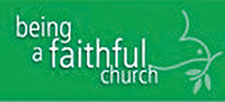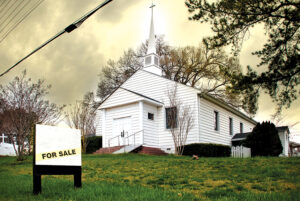Mennonite Church Canada’s General Board offers BFC 6 in a follow-up to delegate discussions at Assembly 2014, which took place in Winnipeg from July 3 to 6, 2014.
Background
The calling/vocation of the church is to seek to understand the desires of God for our times and share this good news. MC Canada is now in the seventh year of a discernment process to strengthen our capacity to be the church even while we consider difficult issues that face congregations. At this time the BFC process is considering sexuality in broad terms, and, more specifically, same-sex committed relationships. The documents and the assembly affirmations in the BFC process to date can be found on the MC Canada website at www.mennonitechurch.ca/tiny/1930. At Assembly 2014 delegates considered a paper on biblical perspectives on sexuality (BFC 5) as well as the feedback summarized in BFC 5.1, in which the following trends were identified:
1. In spite of congregations not being able to reach consensus, responses stated a deep desire for unity and that challenges of same-sex relations should not cause divisions at congregational, area or national church levels.
2. A significant majority of responses reflect the historical affirmations as implied in the Resolution on Sexuality (1986 and 1987), or Article 19 of the Confession of Faith in a Mennonite Perspective (1995). At the same time, the responses express a desire to be more compassionate and welcoming of those individuals who are same-sex attracted.
3. Beyond this majority of responses, there were two contrasting sets of significantly smaller numbers of submissions:
a. Responses that oppose any visiting of the historical understanding of biblical sexuality.
b. Responses that call for more inclusion of persons in same-sex relationships, including welcoming them as members, leaders and as committed same-sex partners.
From the beginning of the BFC process we have prayed for the guidance of the Holy Spirit. We have invited congregations to surround their discernment in worship and prayer, and we have seen much evidence of that. Although BFC 5 did not request a specific response to same-sex relationships, many comments were received. The responses have revealed significant differences of understanding of the will of God relating to same-sex relationships even while Scripture has been the foundation. The responses also clearly indicate that the Spirit of God has placed a deeply felt desire for unity in our hearts. We yearn to be together in congregations, area churches and the national church. Is the same Spirit leading us to differing understandings of faithfulness in regards to same-sex relationships? Is the challenge for us now to see the fruit of this discernment as also being led by the Spirit of God?
Delegates at Assembly 2014 affirmed (90 percent in favour) that three impor-
tant questions emerged from the feedback received. Processing these questions will be the work of BFC 6. Responses also requested that additional resources be identified to enhance congregational discernment.
This BFC 6 discernment guide identifies each of these three questions with additional comments and sub-questions to enhance your discussions. The full BFC 6 discernment guide, which can be found on the MC Canada website, includes a list of resources.
Discernment questions
Question No. 1
God’s gift of unity is not invalidated by our disagreement. How shall we maintain our unity in Christ as congregations, area churches and national church while understanding matters of same-sex relationships differently?
This question probes the essence of unity.
In his Letter to the Ephesians, the Apostle Paul exhorts us to “make every effort to maintain the unity of the Spirit in the bond [chain] of peace” (Ephesians 4:3).
We can presume that this appeal to unity was needed because there was disagreement in the communities that received this letter. In the face of disagreement, their task was to maintain the unity that they had been given by God’s Spirit. Christ had linked them together by a chain of peace.
Paul identifies several links necessary to strengthen unity in the face of disagreement: humility, gentleness, patience, kindness, compassion and forgiveness (4:2-3). Such unity in the face of disagreement equips the body of Christ for service (4:12), and correct understanding (4:13f), so that it grows and is built up in love (4:16).
It seems from the responses received to BFC 5.1 that respondents have reflected this dynamic relationship between unity and disagreement. On the one hand, the responses do indicate a sincere yearning for the unity of the Spirit while, on the other hand, the responses reveal significant disagreement in our understandings of same-sex relationships in the church. Paul’s challenge to us is to be willing to chain ourselves together in peace in order to maintain the unity we desire.
Rather than a focus on agreement, the passage (and Question No. 1) repositions unity as a character of relationship:
a. What important characteristics are necessary to maintain unity while acknowledging different understandings in matters of same-sex relationships?
b. How has your congregation dealt with disagreement on other matters in the past? What has worked well in your discernment in those moments? What did not work well?
c. What would be necessary to create sufficient space to acknowledge our disagreements on matters of sexuality while continuing to work at our larger common vision and mission?
d. How can we honour those within our church who disagree with a widely held viewpoint?
Question No. 2
Most responses indicated a desire to better understand individuals who are same-sex attracted and to demonstrate the love of Christ towards all people.
Congregations may express this desire in different ways. For example, your congregation may wish to strengthen your expression of Christ’s love to those of same-sex orientation, while continuing to embrace MC Canada’s historic understandings of sexuality, as defined by the Saskatoon Resolution on Sexuality (1986), and the Confession of Faith in a Mennonite Perspective.
Or in this desire to show Christ’s love, your congregation may find itself pushing up against the traditional understandings of sexuality, as defined in the denominational documents, and feel led by the Spirit and your study of Scripture to move to a new place of greater acceptance of same-sex relationships.
We look forward to receiving a more complete description of what our congregations would look like as they live out Christ’s love in the area of human sexuality. The following suggestions come from feedback received:
a. Does it mean seeking a better understanding of the best medical/scientific information available regarding same-sex orientation?
b. Or hearing from non-heterosexual Christian brothers and sisters about their experience with Christ and the church?
c. Or coming to understand better how the Bible is interpreted both within the historical understanding of the church and by Christian brothers and sisters who favour a more inclusive attitude to committed same-sex relationships?
d. Or becoming more welcoming in ways that, in your estimation, remain within the parameters of the historical understanding?
We hope that we can share these descriptions across our denomination.
Question No. 3
Based on your reflections in Questions No. 1 and 2, what additional counsel do you have for the area/national church?
This material is published at the request of Mennonite Church Canada.
More about the BFC process:
Being a faithful church
For information and clarification
Between horizons: biblical perspectives on human sexuality
Part 1 of a 6-part series- Being a faithful church: The paths and ditches of Biblical interpretation (Links to the other parts are there.)
Being a Faithful Church 7









Leave a Reply
You must be logged in to post a comment.